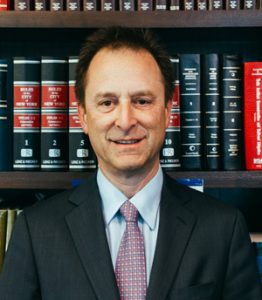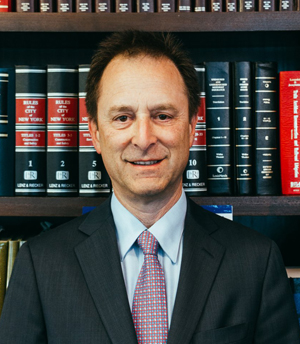BY MICHAEL BARASCH
There is a common misconception among many 9/11 survivors that the 9/11 Zadroga Health & Compensation Act was established to provide health care and compensation only for first responders. That is not true.
It was also established for Michal Novemsky, who was a 15-years-old student at Stuyvesant High School on 9/11. She was diagnosed with breast cancer last year, at age 30.
“When we returned to school several weeks after 9/11, there was dust everywhere I believe the air and dust after September 11th played a part in my developing breast cancer. This is because I tested negative for all known pathogenic mutations in 49 genes associated with hereditary cancer,” said Ms. Novemsky.
The WTC Health Program doctors agreed and certified Ms. Novemsky’s cancer as 9/11-related.

Barasch McGarry is a boutique law firm just two blocks from the World Trade Center. Its 50 attorneys and case managers represent over 10,000 responders and survivors, including over a dozen former students with cancer who returned to their schools in the exposure zone — five of those students were at Stuyvesant High School.
In 2015, Congress reauthorized the Zadroga Act — named in honor of Barasch’s client, NYPD Det. James Zadroga who died of pulmonary fibrosis — and made clear that it is meant to help all those injured by exposure to the toxic dust and fumes around Ground Zero (and designated exposure areas). The reauthorization extended the World Trade Center Health Program for 70 years and the Victim Compensation Fund (VCF) until December 18, 2020. Doctors have now linked many gastro-respiratory illnesses and 68 cancers to the WTC toxic dust. The WTC Health Program will only certify cancers that were diagnosed after what is called a “latency period.” That is the amount of time that the medical community deems necessary to link an illness to environmental toxic exposure.
It is important to know that survivors who worked, lived or went to school south of Canal Street between Sept. 11, 2001 and May 30, 2002, could be eligible for significant compensation through the $7.3-billion VCF. For those who want to join the WTC health program, the eligibility boundaries are slightly different. Those who lived or worked above Canal St. but below Houston St., and in part of western Brooklyn, while not eligible for compensation from the VCF, may be eligible to receive free health care for their 9/11 health illnesses.
The VCF has strict standards to establish that your exposure time satisfies the requirements enacted by the Zadroga Act. In order to be eligible for compensation, survivors must provide evidence that they:
1) were exposed to the toxic dust and
2) that their illnesses have been certified by the WTC Health Program
Regarding the amount of exposure, claimants must prove that they were:
· Caught in the dust cloud or exposed for one hour on 9/11; or
· Present in the exposure zone for 4 hours during the period beginning on Sept. 12th and ending on Sept. 14, 2001; or
· Present for at least 24 hours during the period beginning on Sept. 15th and ending on Sept. 30, 2001; or
· Present for at least 80 hours during the period beginning on Sept. 12th and ending on May 30, 2002.
All survivors should register with the WTC Health Program by calling 1-888-982-4748, or do so online at https://www.cdc.gov/wtc/index.html
There are strict deadlines to register claims with the Victim Compensation Fund.
It’s heartbreaking when cancer survivors, or family members of those who died of cancer, call our firm and we have to tell them that their claims are time-barred. Please be aware that the date that a cancer is certified by the health program starts the two-year window to register a VCF claim. And, if a 9/11 survivor passes away due to their cancer, their families must assert a claim within two years of their death.
For further information, please visit the VCF website www.vcf.gov, or our law firm’s website, www.wtclawyers.com.
Michael Barasch is a managing partner at Barasch McGarry.




































